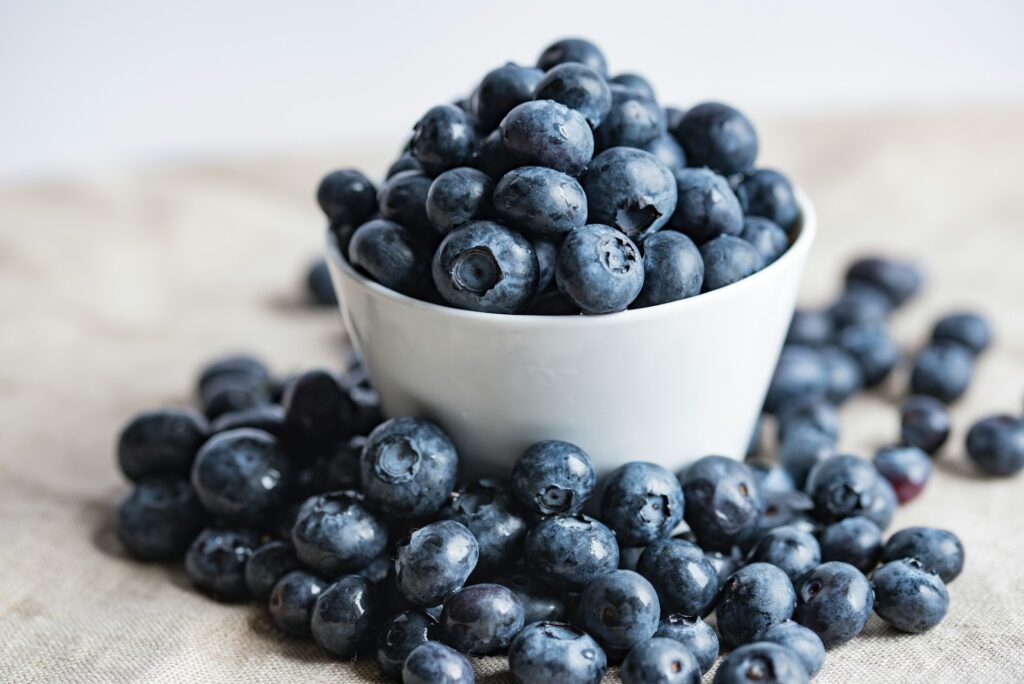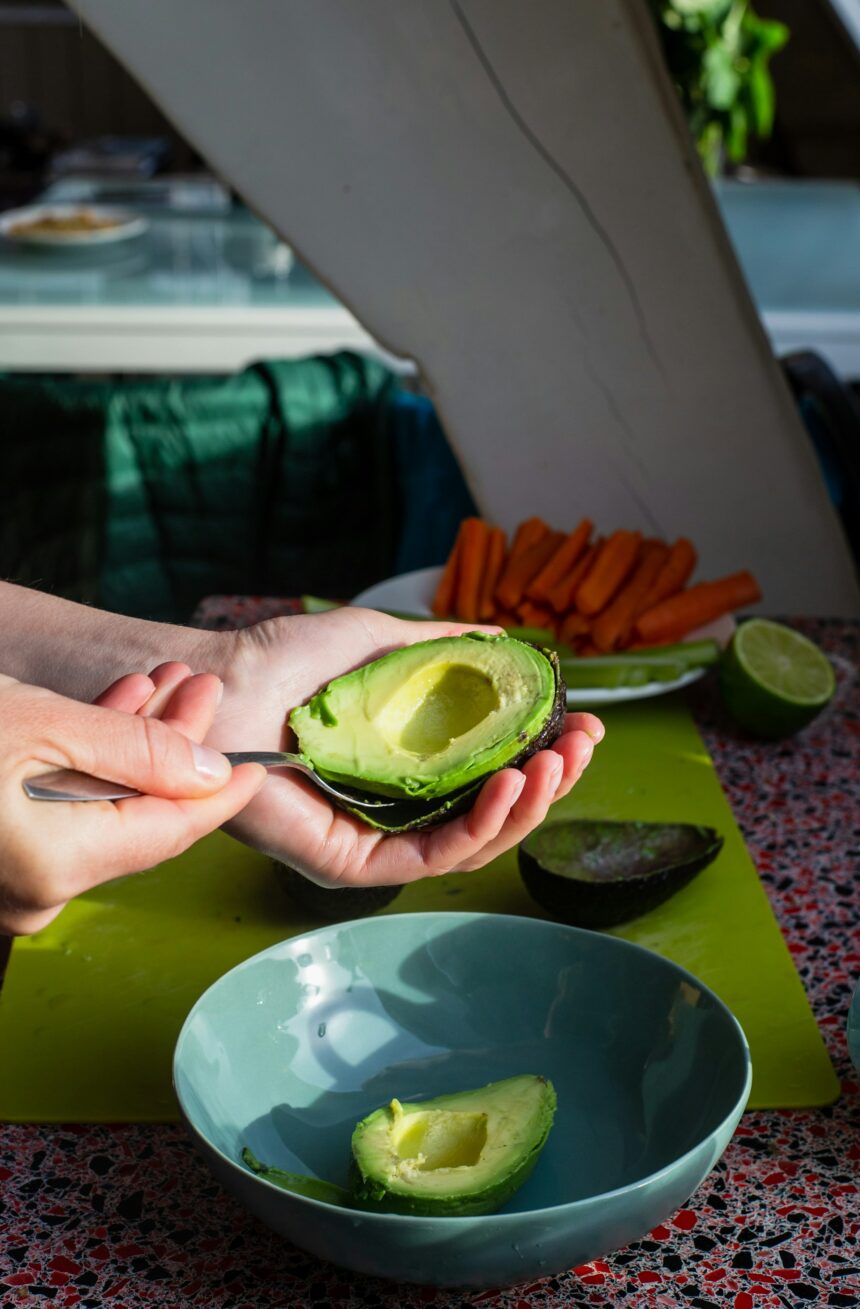In today’s fast-paced world, maintaining a healthy and robust immune system is more important than ever. With the constant exposure to environmental toxins, stress, and unhealthy dietary choices, our bodies need all the support they can get to fight off infections and diseases. Superfoods, nutrient-rich foods packed with antioxidants, vitamins, minerals, and other beneficial compounds, can play a vital role in strengthening your immune system and promoting overall well-being.
What are Superfoods?
Superfoods are nutrient-dense foods that provide exceptional health benefits and are considered to be particularly beneficial for promoting optimal health and well-being. They are often rich in antioxidants, vitamins, minerals, fiber, and other essential nutrients that support various bodily functions, including immune system regulation, inflammation reduction, and chronic disease prevention.
100 Superfoods List for Immune System Boost

- Acai Berries: Acai berries are rich in antioxidants and have anti-inflammatory properties.
- Acerola Cherries: Acerola cherries are an excellent source of vitamin C, which is crucial for immune system function.
- Aloe Vera: Aloe vera has antibacterial and antiviral properties and can help soothe inflammation.
- Amla (Indian Gooseberry): Amla is rich in vitamin C and antioxidants, supporting immune system health.
- Ashwagandha: Ashwagandha is an adaptogen herb that helps manage stress and supports immune function.
- Astragalus: Astragalus is a traditional Chinese herb that has been used for centuries to support the immune system.
- Avocado: Avocados are rich in healthy fats, fiber, and antioxidants, which contribute to immune system health.
- Barley Grass: Barley grass is a good source of fiber, vitamins, and minerals that support overall well-being.
- Bee Pollen: Bee pollen contains various nutrients, including amino acids, vitamins, and minerals, that support immune system function.
- Beets: Beets are rich in antioxidants and have anti-inflammatory properties that benefit immune health.
- Berries (Blueberries, Raspberries, Strawberries): Berries are packed with antioxidants and have immune-boosting properties.
- Black Cumin Seeds: Black cumin seeds have antioxidant and anti-inflammatory properties and have been used in traditional medicine for immune support.
- Black Garlic: Black garlic has antioxidant and antimicrobial properties that support immune system function.
- Blackberries: Blackberries are rich in antioxidants and have anti-inflammatory properties that benefit immune health.
- Broccoli: Broccoli is rich in vitamins, minerals, and antioxidants that support immune system health.
- Brussels Sprouts: Brussels sprouts are rich in antioxidants and have anti-inflammatory properties that benefit immune health.
- Buckwheat: Buckwheat is a good source of fiber, vitamins, and minerals that support overall well-being.
- Burdock Root: Burdock root has antioxidant and anti-inflammatory properties and has been used in traditional medicine for immune support.
- Cabbage: Cabbage is rich in vitamins, minerals, and antioxidants that support immune system health.
- Cacao Nibs: Cacao nibs are rich in antioxidants and have anti-inflammatory properties that benefit immune health.
- Camu Camu: Camu camu is an excellent source of vitamin C, which is crucial for immune system function.
- Carrot: Carrots are rich in beta-carotene, an antioxidant that supports immune system health.
- Cashews: Cashews are a good source of healthy fats, fiber, and antioxidants that support overall well-being.
- Cauliflower: Cauliflower is rich in vitamins, minerals, and antioxidants that support immune system health.
- Cayenne Pepper: Cayenne pepper has antioxidant and anti-inflammatory properties and has been used in traditional medicine for immune support.
- Celery: Celery is rich in vitamins, minerals, and antioxidants that support immune system health.
- Chia Seeds: Chia seeds are a good source of fiber, omega-3 fatty acids, and antioxidants that support overall well-being.
- Chlorella: Chlorella is a type of algae that is rich in vitamins, minerals, and antioxidants that support immune system health.
- Cilantro: Cilantro is rich in antioxidants and has anti-inflammatory properties that benefit immune health.
- Cinnamon: Cinnamon has antioxidant and anti-inflammatory properties and has been used in traditional medicine for immune support.
- Citrus Fruits (Oranges, Grapefruits, Lemons, Limes): Citrus fruits are rich in vitamin C, which is crucial for immune system function.
- Cloves: Cloves have antioxidant and anti-inflammatory properties and have been used in traditional medicine for immune support.
- Coconut: Coconut is rich in healthy fats, fiber, and antioxidants that support overall well-being.
- Coffee: Coffee contains antioxidants and has been shown to have immune-boosting effects.
- Collard Greens: Collard greens are rich in vitamins, minerals, and antioxidants that support immune system health.
- Cordyceps Mushroom: Cordyceps mushroom is a type of fungus that has been used in traditional medicine for immune support.
- Cranberries: Cranberries are rich in antioxidants and have anti-inflammatory properties that benefit immune health.
- Cucumbers: Cucumbers are rich in water and electrolytes, which help maintain hydration and support immune system function.
- Curcumin (Turmeric): Curcumin is a compound found in turmeric that has antioxidant and anti-inflammatory properties and has been used in traditional medicine for immune support.
- Dandelion Greens: Dandelion greens are rich in vitamins, minerals, and antioxidants that support immune system health.
- Dark Chocolate: Dark chocolate contains antioxidants and has been shown to have immune-boosting effects.
- Dates: Dates are a good source of fiber, vitamins, and minerals that support overall well-being.
- Elderberries: Elderberries are rich in antioxidants and have anti-inflammatory properties that benefit immune health.
- Echinacea: Echinacea is a type of herb that has been used in traditional medicine for immune support.
- Eggs: Eggs are a good source of protein, vitamins, and minerals that support overall well-being.
- Fennel Seeds: Fennel seeds have antioxidant and anti-inflammatory properties and have been used in traditional medicine for immune support.
- Figs: Figs are a good source of fiber, vitamins, and minerals that support overall well-being.
- Flaxseeds: Flaxseeds are a good source of fiber, omega-3 fatty acids, and antioxidants that support overall well-being.
- Garlic: Garlic has antioxidant and antimicrobial properties and has been used in traditional medicine for immune support.
- Ginkgo Biloba: Ginkgo biloba is a type of herb that has been used in traditional medicine for immune support.
- Ginger: Ginger has antioxidant and anti-inflammatory properties and has been used in traditional medicine for immune support.
- Ginseng: Ginseng is a type of herb that has been used in traditional medicine for immune support.
- Goji Berries: Goji berries are rich in antioxidants and have anti-inflammatory properties that benefit immune health.
- Grapefruit: Grapefruit is rich in vitamin C, which is crucial for immune system function.
- Green Tea: Green tea contains antioxidants and has been shown to have immune-boosting effects.
- Guava: Guava is rich in vitamin C, which is crucial for immune system function.
- Hemp Seeds: Hemp seeds are a good source of protein, omega-3 fatty acids, and antioxidants that support overall well-being.
- Honey: Honey has antibacterial and antiviral properties and has been used in traditional medicine for immune support.
- Horseradish: Horseradish has antioxidant and antimicrobial properties and has been used in traditional medicine for immune support.
- Kale: Kale is rich in vitamins, minerals, and antioxidants that support immune system health.
- Kelp: Kelp is a type of seaweed that is rich in iodine, which is essential for thyroid function and immune system health.
- Kiwi: Kiwi is rich in vitamin C, which is crucial for immune system function.
- Kombucha: Kombucha is a fermented tea that contains probiotics, which support gut health and overall well-being.
- Lemon: Lemon is rich in vitamin C, which is crucial for immune system function.
- Licorice Root: Licorice root has antioxidant and anti-inflammatory properties and has been used in traditional medicine for immune support.
- Lima Beans: Lima beans are a good source of protein, fiber, and vitamins that support overall well-being.
- Lentils: Lentils are a good source of protein, fiber, and vitamins that support overall well-being.
- Lychee: Lychee is rich in vitamin C, which is crucial for immune system function.
- Maca Root: Maca root is a type of herb that has been used in traditional medicine for immune support.
- Mango: Mango is rich in vitamin C, which is crucial for immune system function.
- Matcha: Matcha is a type of green tea that is rich in antioxidants and has been shown to have immune-boosting effects.
- Millet: Millet is a good source of fiber, vitamins, and minerals that support overall well-being.
- Moringa: Moringa is a type of plant that is rich in vitamins, minerals, and antioxidants that support overall well-being.
- Mushrooms (Shiitake, Maitake, Reishi): Mushrooms are rich in antioxidants and have been shown to have immune-boosting effects.
- Mustard Seeds: Mustard seeds have antioxidant and antimicrobial properties and have been used in traditional medicine for immune support.
- Natto: Natto is a fermented soybean product that contains probiotics, which support gut health and overall well-being.
- Nettle Leaf: Nettle leaf is rich in vitamins, minerals, and antioxidants that support immune system health.
- Noni Juice: Noni juice is rich in antioxidants and has been shown to have immune-boosting effects.
- Nuts (Almonds, Walnuts, Pecans): Nuts are a good source of healthy fats, fiber, and antioxidants that support overall well-being.
- Oatmeal: Oatmeal is a good source of fiber, vitamins, and minerals that support overall well-being.
- Okra: Okra is rich in vitamins, minerals, and antioxidants that support immune system health.
- Olive Oil: Olive oil is a good source of healthy fats and antioxidants that support overall well-being.
- Onions: Onions have antioxidant and antimicrobial properties and have been used in traditional medicine for immune support.
- Oranges: Oranges are rich in vitamin C, which is crucial for immune system function.
- Oregano: Oregano has antioxidant and antimicrobial properties and has been used in traditional medicine for immune support.
- Parsley: Parsley is rich in vitamins, minerals, and antioxidants that support immune system health.
- Passion Fruit: Passion fruit is rich in vitamin C, which is crucial for immune system function.
- Pawpaw: Pawpaw is rich in vitamin C, which is crucial for immune system function.
- Peaches: Peaches are rich in vitamin C, which is crucial for immune system function.
- Peanuts: Peanuts are a good source of protein, healthy fats, and antioxidants that support overall well-being.
- Pears: Pears are rich in fiber, vitamins, and minerals that support overall well-being.
- Peppers (Bell Peppers, Chili Peppers): Peppers are rich in vitamins, minerals, and antioxidants that support immune system health.
- Pineapple: Pineapple is rich in vitamin C, which is crucial for immune system function.
- Pistachios: Pistachios are a good source of healthy fats, fiber, and antioxidants that support overall well-being.
- Pomegranate: Pomegranate is rich in antioxidants and has been shown to have immune-boosting effects.
- Potatoes (Sweet Potatoes, Russet Potatoes): Potatoes are a good source of fiber, vitamins, and minerals that support overall well-being.
- Pumpkin Seeds: Pumpkin seeds are a good source of healthy fats, fiber, and antioxidants that support overall well-being.
- Quinoa: Quinoa is a good source of protein, fiber, and vitamins that support overall well-being.
- Raspberries: Raspberries are rich in antioxidants and have immune-boosting properties.
- Red Cabbage: Red cabbage is rich in vitamins, minerals, and antioxidants that support immune system health.
How can I ensure that I’m getting a balanced and varied diet?
To ensure that you’re getting a balanced and varied diet, follow these tips:
- Make Half Your Plate Fruits and Vegetables: Aim to fill half of your plate with fruits and vegetables at every meal. This simple strategy helps you increase your intake of essential vitamins, minerals, fiber, and antioxidants.
- Choose a Variety of Colors: Incorporate a variety of colorful fruits and vegetables into your meals. Different colors indicate different nutrient profiles, so eating a rainbow of produce helps ensure you’re getting a wide range of nutrients.
- Include Whole Grains: Opt for whole grains like brown rice, quinoa, oats, and whole-wheat bread instead of refined grains like white rice, white bread, and sugary cereals. More fiber, vitamins, and minerals may be found in whole grains.
- Choose Lean Protein Sources: Include lean protein sources into your meals, such as fish, chicken, beans, lentils, tofu, and low-fat dairy products. For tissues to be built and repaired, protein is necessary.
- Limit Unhealthy Fats: Reduce your intake of saturated and trans fats, which are found in processed foods, fatty meats, and fried foods. Instead, choose healthy fats from sources like olive oil, avocados, nuts, and seeds.
- Consume Low-Sugar Foods and Beverages: Limit your intake of added sugars, which are found in sugary drinks, processed foods, and desserts. Choose water, unsweetened tea, or sparkling water instead of sugary beverages.
- Read Food Labels: Pay attention to food labels when shopping and cooking. Look for foods low in sodium, saturated and trans fats, and added sugars. Select meals that are high in minerals, vitamins, and fiber.
- Cook More Meals at Home: Preparing meals at home gives you more control over the ingredients and portion sizes. Cooking at home also allows you to experiment with different recipes and incorporate a wider variety of foods into your diet.
- Be Aware of Portion Proportions: To prevent overindulging, be mindful of portion proportions. Use smaller plates and bowls, and be mindful of how much food you’re consuming.
- Listen to Your Body: Tune in to your body’s hunger and fullness cues. When you’re hungry, eat, and when you’re satisfied, stop. Avoid eating out of boredom or emotional distress.
- Consider Seeking Guidance: If you have specific dietary concerns or restrictions, consult with a registered dietitian or other qualified healthcare professional. They can provide personalized advice and help you create a balanced and varied diet that meets your individual needs.
Conclusion
Incorporating a variety of superfoods into your diet is a proactive approach to supporting your immune system and overall health. These nutrient-rich foods provide a wealth of antioxidants, vitamins, minerals, and other beneficial compounds that work synergistically to strengthen your body’s natural defenses against infections and diseases.
While superfoods can play a significant role in boosting your immune system, it’s important to remember that a balanced and varied diet is the cornerstone of good health. Aim for a diet high in whole grains, fruits, vegetables, lean meats, and healthy fats. Regular exercise, adequate sleep, and effective stress management are also essential for maintaining a robust immune system.
If you have specific health concerns or conditions, consult with a healthcare professional before making significant changes to your diet. They can provide personalized guidance and ensure that you’re getting the nutrients you need for optimal health.
Remember, a healthy lifestyle that includes a diverse range of nutrient-rich foods, regular physical activity, and adequate rest is the best way to support your immune system and promote overall well-being.







